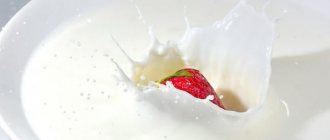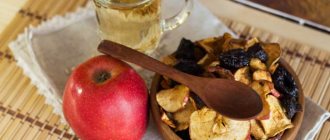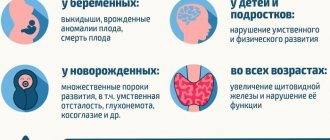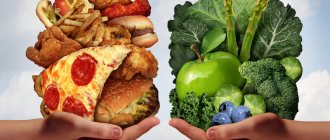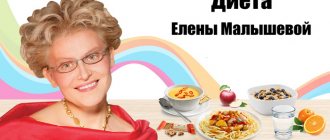It is important!
At the same time, the composition of milk is not constant: it differs at different times of the day and during different periods of lactation.
For example, the concentration of fat changes even during one feeding: at the end it is 4-5 times higher than at the beginning. It is believed that the fat content at the end of this process acts as a satiety regulator, so the timing of any feeding should not be arbitrarily limited*. Energy and the formation of strong immunity.
As for lactose in general, it is not only a great source of energy for the baby. In his body, it breaks down into substances that help the development of the central nervous system. The enzymes contained in breast milk populate the baby’s body with the necessary flora, form and strengthen the immune system, which means it will be less likely to be affected by viruses.
Tender feelings.
With natural feeding, the emotional connection between a mother and her child only intensifies, which is also important. Also, during feeding, the female body produces the hormones oxytocin and prolactin, which have a calming effect.
Why isn't he losing weight?
In the maternity hospital, the mother usually leaves memories of birth difficulties and pain. Most often, some of the kilograms she gained during pregnancy remain there. But a significant part of them firmly adheres to the body of a young mother. You should understand and accept the fact that the kilograms will go away gradually, and not all at once. And not on your own: you must contribute to this. Read how to lose weight while breastfeeding.
But some young mothers still fail to lose weight during breastfeeding, even after many months. There may be several reasons:
- The habit of “eating for two.” Sometimes a woman continues to indulge in excesses that became a habit during pregnancy.
- Psychological factor. This includes sleepless nights, those extra pounds and lack of time to take care of yourself. A young mother may become depressed, withdraw into herself, and refuse enjoyable walks and communication with other people. By keeping her stress confined within four walls, a nursing mother causes even greater harm to her mental and physical health.
- Introduction of strict diets. Despite all the contraindications, some mothers begin to follow diets literally from the first days after giving birth. Strict diets with restrictions on certain food groups have a particularly negative effect on a woman’s body. Under such conditions, mommy can achieve the opposite effect - the extra pounds will not go away, but will only multiply, being deposited on the hips and waist.
- Incompetent or overly cautious advice from a pediatrician. Not all doctors whom a nursing mother consults have sufficient knowledge about the intricacies of nutrition for a woman who has recently given birth. In the old fashioned way, the doctor can prohibit the mother from consuming dairy products, fruits and other treats. A woman limited in her favorite foods can zealously “pounce” on other dishes. And it’s unlikely to be steamed broccoli or low-fat kefir.
It is important!
It is recommended to introduce new elements into the nutrition system gradually, observing the child’s reaction to a particular dish.
It is best to adhere to a fractional system, i.e., eat 5-6 times a day 30-40 minutes before feeding the baby - this promotes better milk secretion. Pay attention to the list of must-have products that will support your body:
- low-fat fermented milk products: kefir, sour cream, cheese, cottage cheese;
- cereals: buckwheat, corn, rice;
- vegetables and fruits: pears, apples, potatoes, cauliflower, white and Brussels sprouts, broccoli, zucchini and others;
- soups: with vegetable broth;
- lean meats: turkey fillet, chicken (boiled and stewed, as well as in the form of steamed cutlets);
- bread: 2nd grade wheat, rye;
- drinks: herbal tea, dried fruit compote, sugar-free fruit drink;
- butter: 20-40 g butter and 20-30 g vegetable oils.
What and with what can be replaced?
Fish, eggs or cottage cheese can be eaten instead of a meat dish. But porridge instead of meat or milk, or meat instead of vegetables is an unequal replacement
in terms of nutritional value. It is better to replace fried foods with stewed, boiled and steamed ones.
Tags:
- Breast-feeding
- Diet
4 comments • To leave a comment you must be an authorized user
- FeyaDragee, my pediatrician doesn’t allow me fish and vegetables with fruits too, because there are no natural ones anywhere now, everything with nitrates. (((
- littlen Of course, everything depends on the baby’s body. In the first 2-3 weeks I only ate buckwheat and oatmeal, eating a sandwich with butter. And the baby’s tummy will swell in any case. From any unfamiliar products. Therefore, it is recommended to administer it carefully, no more than once a week or so. So you should stock up on patience and plantex =)
- kati8816 I stuck to the diet, my son still had terrible stomach pain, I gave up on everything and eat as before
- askamoya What specific vegetables and vegetable dishes are meant, if in the first months of life a baby gets bloated from absolutely all the raw and heat-treated vegetables eaten by the mother, I generally tried to forget about fruits ((Or is it just me???
What foods are not recommended for a nursing mother to consume?
Almost everything a mother eats is present in milk in one form or another. You should avoid foods that can worsen the taste of milk (salty, sour, spicy) and its smell (garlic). Some foods, for example, legumes and white cabbage, can have a bad effect on a child’s intestines - increase gas formation and even cause diarrhea. It is not recommended to eat foods that are likely to cause allergies.
- Highly allergenic foods - fish, caviar, seafood (crayfish, crabs, shrimp, crab sticks, canned snack foods), eggs, mushrooms, nuts, honey, chocolate, coffee, cocoa.
- Smoked and marinated foods, fried meat.
- Whole milk, cream, fermented milk products with flavors and fruit fillings, glazed cheese curds.
- Tropical fruits, strawberries, raspberries.
- Fast food and fast food.
- Alcohol.
- Carbonated drinks.
Prohibited Products
Certain foods are prohibited when breastfeeding. The following should not be used:
| Product | Peculiarities |
| Alcohol | It passes into milk and leads to a delay in the development of the child, causing problems with the cardiovascular and digestive systems. |
| Strong allergens | Applies to crayfish, crabs, mackerel, citrus fruits, all exotic, red and orange fruits and vegetables. You need to introduce them into your diet very carefully, and it is better not to use them in the first month after birth. |
| Carbonated sweet drinks, products with preservatives and dyes | They degrade the quality of milk |
| Fatty meat and fish, smoked meats, canned food, sauces, marinades, pickles | They are poorly digestible |
| Some vegetables | This applies to garlic and onions, as they have a specific aroma, and the substances pass into the milk, so the child may not like it. Various exotic vegetables (like Jerusalem artichoke) will also have to be removed from the menu for now |
Useful tips
Allergens tend to gradually accumulate in the body. Thus, the baby may react to foods that have been present in the mother's diet over the past two weeks. For this reason, experts recommend that nursing mothers keep a food diary in which all meals must be recorded. In this case, if a child exhibits allergy symptoms, it will be possible to look at the diary entries and guess which product the body reacted to. Such notes are especially relevant in the first months of a baby’s life.
Proper nutrition for mothers during the postpartum period
There are several basic principles on which the nutrition of nursing mothers is based. The first is individuality. According to experts, there is no one standard postpartum diet, since it is important to take into account the individual characteristics of each female body: body structure, the state of the immune system, the presence of allergic reactions. And if one mother can afford to organize fasting days on apples, then for another, apples may be completely prohibited and you need to choose a different product for these purposes. The second is the selection of an individual nutrition schedule. This period depends on the characteristics of the new mother’s body and the baby’s reaction. Each new product should be introduced into the diet gradually so as not to provoke a negative reaction in the newborn.
Content:
- Proper nutrition for mothers during the postpartum period
- Say stop to orange and chocolate
- Postpartum nutrition
- Postpartum diet after cesarean section
- Diets for weight loss during the postpartum period
- Breastfeeding - diet
The postpartum diet is important and there is a list of food groups that must be completely removed from a woman’s diet during the postpartum period, these include: fruits, namely citrus fruits and everything with a red color (red apples, peaches, etc.); potential allergens - exotic foods, caviar, honey, etc.; out-of-season vegetables, such as tomatoes and cucumbers (in winter); sparkling sweet water; grape; cabbage; sausages; smoked meats
How much fluid should you drink?
It is impossible to say for sure whether a woman needs to drink more water during lactation. However, you should drink your usual amount, and otherwise focus on the amount of milk. If it is enough or in excess, then you should not drink water forcefully. If it happens that it is not enough, then increase the volume by about 1000 ml. It is recommended to quench your thirst with bottled purified water without carbon. The need for fluid often accompanies the beginning of the feeding process, so you can take care of this in advance and keep a bottle of water nearby**.
What diets are prohibited?
A diet for losing weight during lactation should be selected especially carefully. Not all options for common diets are suitable for a young mother and her baby. So, you need to give up these types of diets:
- Express diet (sharp and rapid weight loss will not benefit the mother’s body);
- Mono-diet: purely vegetable, dairy, etc. (while feeding a child, you cannot exclude a product or food groups from the menu and consume only one nutritional component);
- Protein diet (the menu of a nursing mother should include proteins, fats and carbohydrates);
The diet after childbirth should under no circumstances be too strict. The best option for a nursing woman would be to count calories, consume the right foods, stay hydrated and have periodic fasting days.
Do I need to take vitamins?
The lactation period is accompanied by the body's greatest need for calcium, vitamin D, iodine and Omega-3 acids. If a woman eats a balanced diet, taking into account all the recommendations, then she should not be afraid of their deficiency. You do not need to take vitamins at your own discretion - only a doctor can prescribe them and only after passing tests. However, in order to increase lactation and maintain the level of minerals and vitamins in the female body, it is recommended to include specialized products in the diet, for example “Lactamil”: it contains the necessary macro- and microelements, vitamins, prebiotics, lactogenic herbs, Omega-3 fatty acids and Whey Protein.
Fasting days during breastfeeding
Some experts (pediatricians, nutritionists, etc.) speak sharply negatively about fasting days during lactation. However, a properly organized fasting day will benefit the young mother, especially if her diet is far from correct. Doctors recommend fasting days even for pregnant women, subject to the necessary indications (excess weight, gestosis, edema).
Since nursing mothers are a special type of women losing weight, they should treat fasting days in a special way. As a rule, such days include the consumption of not one, but several products.
A diet for weight loss during breastfeeding does not exclude the following options for fasting days:
- Only fruit. A young mother is supposed to eat 1.5 kilograms of green or yellow apples per day.
- Only vegetables. 1.5 kilograms of fresh vegetables in suki (mother’s choice). Vegetables should be consumed in the form of salads, seasoned with unrefined vegetable oil or 10% sour cream.
- Only kefir. Involves consuming 1.5 liters of kefir, low-fat yoghurt or fermented baked milk per day.
- Rice only. Boil 150 g of dry rice (preferably brown) in water without adding salt. Ready rice can be eaten with the addition of any fruit.
- Only buckwheat. Boil 150 g of buckwheat or steam in a thermos overnight. You can eat buckwheat with the addition of any vegetables.
- Only cottage cheese. 500 g of low-fat cottage cheese combined with 1 liter of kefir.
- Only meat. Eat 500 g of lean poultry or beef all day long along with 1 kg of fresh vegetables.
- Only fish. Combine 500 g of lean fish (pollock, hake, perch, pike, hake, bream, etc.) with 1 kg of fresh or boiled vegetables.
When choosing a fasting day, mom should focus on her tastes. If she doesn’t like cottage cheese or buckwheat, you shouldn’t force yourself and spend days like this. It is best to choose products that are acceptable to you. Such days should not be spent more than once, maximum twice a week.
When losing weight, you should not rely only on fasting days. The rest of the time, nutrition should also be correct and balanced.
Menu for weight loss for every day
It is most convenient to divide the foods you consume into a week. A daily diet is perfect for these purposes. An approximate diet for a nursing mother to lose weight, a menu for every day.
Various fruits, marshmallows and marshmallows, baked goods made from wholemeal flour, and cheese are suitable as snacks. From time to time you can treat yourself to rich pastries or dark chocolate, the main thing is not to overdo it in consuming such products.
A diet for a nursing mother to lose weight is one of the simple and effective ways to regain her former shape after the birth of the baby. The main thing to remember is that the menu should be balanced, the products should be healthy, and the drinking regime should be sufficient. If these conditions are met, mommy will very soon begin to notice improvements in her appearance, which will also be confirmed to her by the scales and the mirror.

